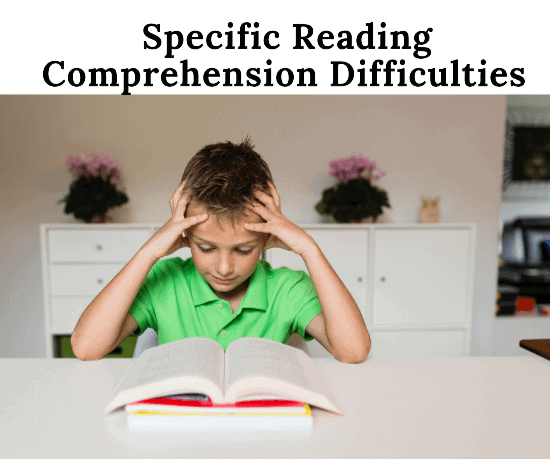How to Help Children Overcome Common Problems With Reading?
Reading is one of the essential skills required to survive in this world. While most children start reading by the age of 6-7, some can read at a very young age of 4-5 years. Young children are taught the alphabet of the desired language and start uttering the letter as soon as they can. However, every child is unique and learns at their own speed.
But, even after learning the basics of reading, some children don’t achieve the language fluency expected at the age. Others are unable to comprehend what they are reading. There are several reasons why children can experience problems with reading. Some of these include dyslexia, ADD, ADHD, improper directional tracking, lack of comprehension skills, trouble decoding words, hearing loss, and poor vision.
While all of these reasons can compromise a child’s reading ability, in our guide on reading problems and solutions, we’ll focus on three reading patterns that affect most children – SWRD, SRCD, and MRD. We will also provide you with some valuable tips oh how these can be improved.
Ready to help your child overcome common reading problems?
Help Children Overcome Common Problems With Reading
In this guide, we’ll focus on defining the common types of reading problems. We’ll also include solutions for helping children with reading comprehension problems overcome their difficulty in reading and writing.
1. Specific Word Reading Difficulties (SWRD)
Specific Word Reading Difficulties, also known as SWRD, are reading-related difficulties. It does not, however, include children who have low comprehension skills. Several studies have found that one of the most effective ways of helping children with SWRD includes phonic interventions. To identify SWRD in children, a teacher or instructor has to pay close attention to a child’s reading. We’ll list a few traits that can help you identify whether or not a child has SWRD.
1.1 How to Identify if the child has SWRD?
Parents or teachers can perform assessments to determine out-of-context word decoding, oral text reading accuracy, oral text reading fluency, and oral vocabulary.
- Children with SWRD have hard time spelling words. They also have below-average phonemic awareness.
- They confuse letters for each other (example: b and d).
- They find it hard to match sounds with letters or letter patterns.
- When they encounter an unfamiliar word, they might substitute it with a familiar word.
- When they have trouble reading a word, they’ll guess the word based on either a picture or the first letter of the word.
- This affects their ability to read fluently, which is noticeable.
- They suffer from below-average reading comprehension.
1.2 Strengths of a child with SWRD
- Children with SWRD may have problems with word decoding, but they do well in a scenario where information is provided to them verbally.
- Usually, children with SWRD can read familiar words and have strong reading comprehension.
1.3 How to Help a Child Overcome SWRD?
- Children with SWRD need systematically planned phonics courses. These courses should include combining phonemic awareness with phonics instructions.
- In order to get better at spelling and decoding phonics categories, these children need to learn phoneme blending and segmentation. Phoneme blending is putting together sounds in a word, whereas segmenting means pulling sounds apart.
- With these techniques, children can be taught to identify and manipulate the sounds in words. There are blending, segmentation and other phonics games designed specially to help children develop better phonemic awareness.
- Children with SWRD should also be taught Syllabication, which should help the children get better at decoding multisyllabic words.
2. Specific Reading Comprehension Difficulties (SRCD)
In contrast, children with specific reading comprehension difficulties (SRCD) have exactly the opposite problem. These children have poor reading comprehension. However, they have average word reading skills.
Children with SRCD need vocabulary and oral language development intervention. They also need to be taught text comprehension under the guidance of a professional instructor. To identify SRCD in a child, an instructor needs to monitor and identify the issues. We’ll list a few traits that can help you identify whether or not a child has SRCD.
2.1 How to Identify if the child has SRCD?
Parents or teachers can perform assessments to determine reading and listening comprehension.
- Their reading comprehension is below average (i.e. they are more than often unable to understand what they are reading)
- It also stands to reason that they may have poor listening comprehension and oral vocabulary.
- These limitations may also affect their language fluency.
- Children with SRCD have average word decoding skills.
- The child may even avoid reading and writing due to low confidence.
2.2 Strengths of a child with SRCD
- Often children with SRCD have good reading foundations.
- While their comprehension is compromised, they usually are good at spelling.
2.3 How to Help a Child Overcome SRCD?
- In cases such as SRCD, the teacher and instructor need to identify the comprehension areas in which the child is found lacking. Suppose if a child experiences difficulty in summarising text or understanding the text structure, an instructor can show them how to summarise text by identifying integral points in the text.
- Instructors or teachers can conduct a classroom discussion or read-aloud, during which they can teach the child about text structure with the help of graphic organisers.
- Listening to people read and reading the text can also help children develop their reading comprehension.
- Children with SRCD can also benefit from oral language development intervention.
3. Mixed Reading Difficulties (MRD)
Mixed Reading Difficulties includes poor word-reading and reading comprehension skills. In order to help children with MRD improve, teachers or instructors can use a combination of solutions to correct SWRD and SRCD. Let’s focus on how you can identify whether the child has MRD.
3.1 How to Identify if the child has MRD?
Parents or teachers can perform assessments to determine out-of-context word decoding, oral text reading accuracy, oral text reading fluency, oral vocabulary, listening comprehension and reading comprehension.
- Their word decoding skills are below average. They also have below-average reading comprehension.
- Their poor decoding and comprehension skills adversely affect their reading fluency, which is considered weak.
- Similar to SRCD, some children with MRD will exhibit low confidence due to their reading difficulties. They might even try to avoid learning.
3.2 Strengths of a child with MRD
- Every child with MRD is unique. They have unique strengths that can be identified by a professional instructor/teacher.
- Children with MRD are strong in certain reading aspects or specific areas of language.
3.3 How to Help a Child Overcome MRD?
- Once you have identified the reading difficulties, you can use a combination of interventions offered by SWRD and SRCD.
- Children having trouble with word-decoding will require phonic interventions.
- They’ll also need to practice decoding skills while reading words.
- To help a child overcome reading comprehension, the instructor can turn to explicit teaching methods.
- Reading aloud to children can help improve their comprehension skills.
Read: How to Teach Phonics to Kids
Ready to help your child overcome common reading problems?
Quick Summary
Children with SWRD and MRD have difficulties decoding words and can be helped with phonics intervention. These children can also benefit from fluency intervention to improve decoding. Children who have SRCD require help with listening and reading comprehension. Some students with MRD exhibit the same issues as SRCD. Both of them can benefit from comprehension and vocabulary interventions.
To utilize the information provided in this guide, you’ll have to, first, identify if your child experiences any reading difficulties. Then, with the help of available information, you can identify the type of reading problem they have.
If necessary, you can perform additional assessments with the help of a professional. Using the resultant data, you can set up an intervention to help the child improve their reading abilities. You can also monitor the child’s progress until they catch up and overcome their issues.
As an institute offering phonics for kids in Mumbai, you can connect with us to learn how we can help your child overcome problems with reading and enhance their comprehension skills.

Hema Dave
Stemming from the aspiration to nurture and inspire young minds, Hema started her professional journey into education 20+ years ago. She founded 'Phonic Smart' as a trained educationist, an institute committed to equipping children with phonics skills and helping parents and teachers implement them effectively. Her diverse skill sets, encompassing teaching, teacher training, and coaching allow her to contribute valuable insights to the education industry.



